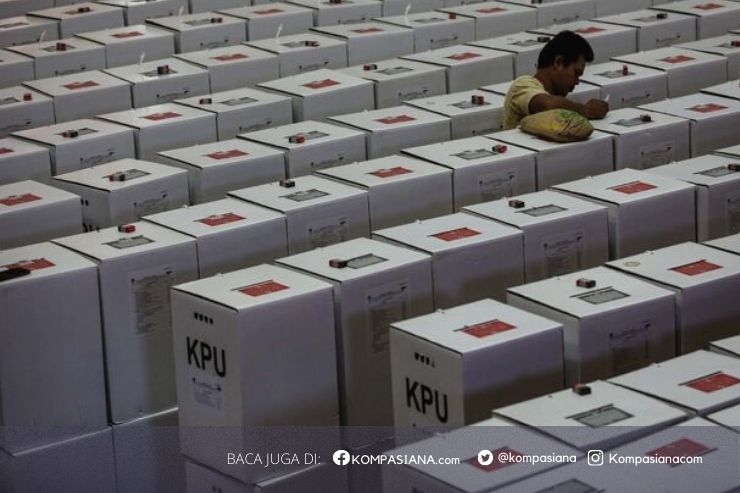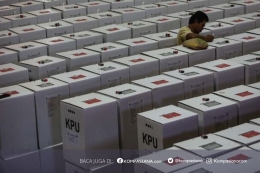Introduction
In the realm of Indonesian politics, the rise of Joko Widodo, affectionately known as Jokowi, was greeted with optimism and hopes for a new era of leadership. He emerged as a symbol of change and a break from the entrenched practices that had long dominated Indonesian politics. However, in just a few weeks, Jokowi's political career has encountered several challenges that could potentially result in a hard landing. This article delves into three critical issues that have cast shadows over his leadership: (1) the resurgence of nepotism, (2) the alleged utilization of state institutions to facilitate his agenda, and (3) the controversial embrace of figures associated with the authoritarian New Order regime.
The Resurgence of Nepotism
One of the defining features of Jokowi's early political career was his image as an outsider untouched by the web of nepotism and corruption that had plagued Indonesian politics. His rise from a humble background to the highest office in the country was celebrated as a triumph of meritocracy and integrity. However, recent events have raised concerns about the resurgence of nepotism within his government.
An incident that drew significant attention was the candidacy of Gibran Rakabuming, Jokowi's son, in the 2024 Indonesian presidential race. Despite the controversy, Gibran has entered the race as one of the vice-presidential candidates alongside Prabowo, who is the presidential candidate supported by Gerindra, Golkar, Partai Demokrat, PAN, and several other small and non-representative parties. This situation has raised concerns and led to questions about the role of the Constitutional Court, chaired by Jokowi's brother-in-law. While Jokowi's supporters argue that his son's qualifications and popularity justify his candidacy, others perceive it as an instance of nepotism benefiting the president's family.
Moreover, claims of preferential treatment and government contracts being granted to enterprises linked to Jokowi's family or the families of his ministers have ignited concerns regarding nepotism within his administration. These allegations, should they be substantiated, hold the potential to cast a shadow over Jokowi's reputation as a proponent of ethical, transparent, and uncorrupted governance.
The issue of nepotism is a deeply contentious and sensitive matter in any political landscape, let alone in a nation as diverse and complex as Indonesia. It pertains to the act of favoring relatives or close associates when making decisions or dispensing resources, and it has the potential to erode public trust and damage the credibility of leaders and institutions. When such allegations arise within the context of a nation's government, it becomes an issue of national concern, especially when it involves high-ranking officials, their families, or individuals closely tied to them.
In the case of Jokowi, who initially ascended to the presidency as a symbol of hope and reform, allegations of nepotism strike at the core of his leadership. His commitment to clean governance and transparency was a cornerstone of his appeal to the Indonesian public. His rise from humble beginnings, coupled with his unpretentious demeanor, conveyed the image of a leader who prioritized the welfare of ordinary citizens over political elites. However, the recent allegations have put this image under scrutiny and shaken the trust of those who once believed in his unwavering dedication to these principles.
Favorable treatment suggests that certain individuals or businesses enjoy a level of advantage and influence not accessible to the public. In a democracy that espouses equality, this notion contradicts the principles of fairness and justice that underpin society. If proven to be true, it would signal a disconcerting departure from the principles that Jokowi's leadership was meant to embody. It would imply that those in positions of power have the capacity to bend the rules in favor of their associates, thereby creating an environment that fosters favoritism over meritocracy.
The implications of these allegations extend beyond mere suspicion. They threaten the very essence of Jokowi's leadership legacy. As a leader who championed the idea of a cleaner, more transparent government, he must confront these allegations with the utmost seriousness. He is not only defending his personal reputation but also safeguarding the ideals and aspirations of the citizens who entrusted him with their hopes for a better Indonesia.
To assess the true impact of these allegations on Jokowi's image, one must consider the broader context. Indonesia, as a nation that has made significant strides in democratization and governance reform, has come a long way since the era of authoritarian rule. The people's expectations for clean and fair governance have never been higher. Jokowi's leadership was expected to exemplify these principles, and any perceived deviation from this path is viewed with keen interest.







